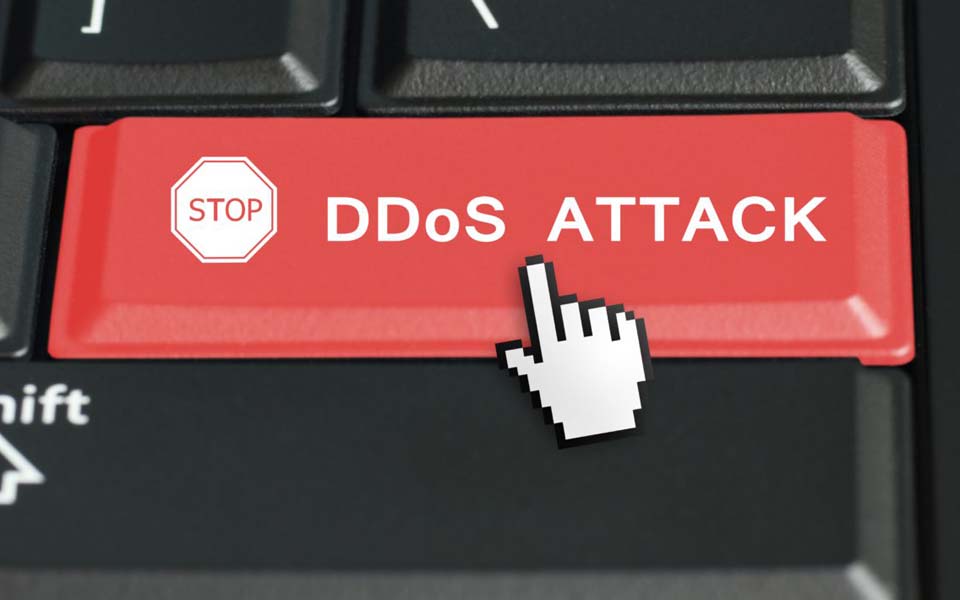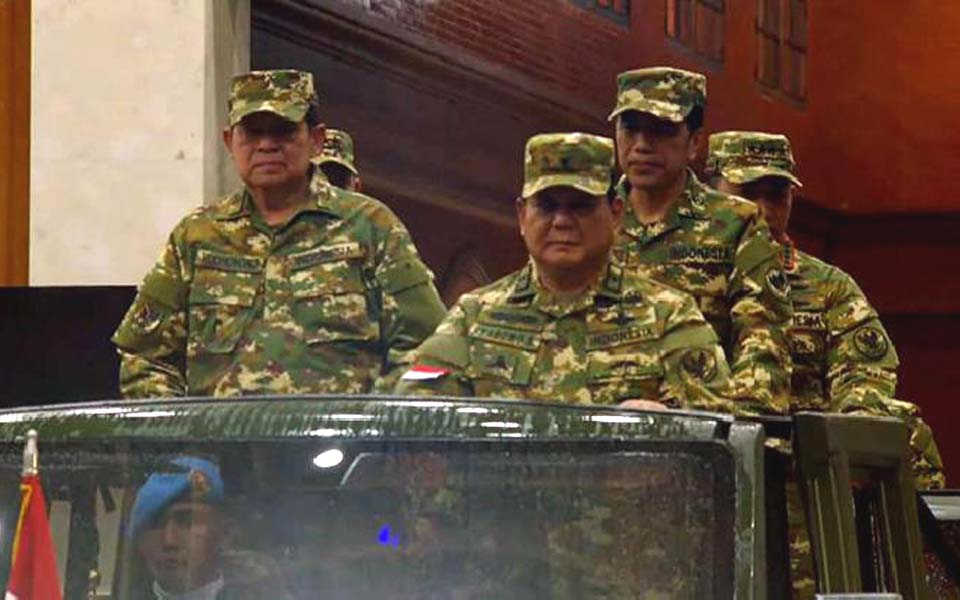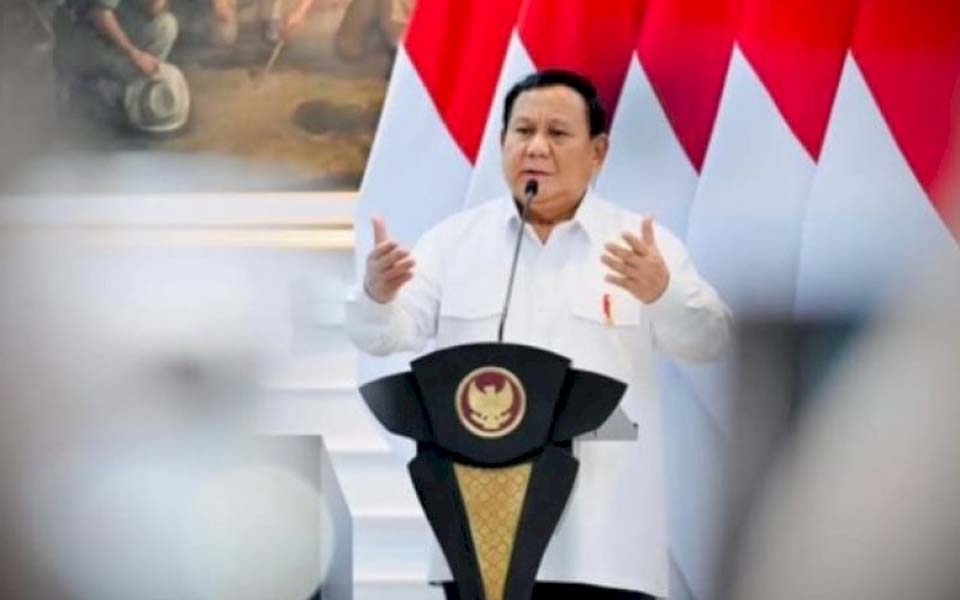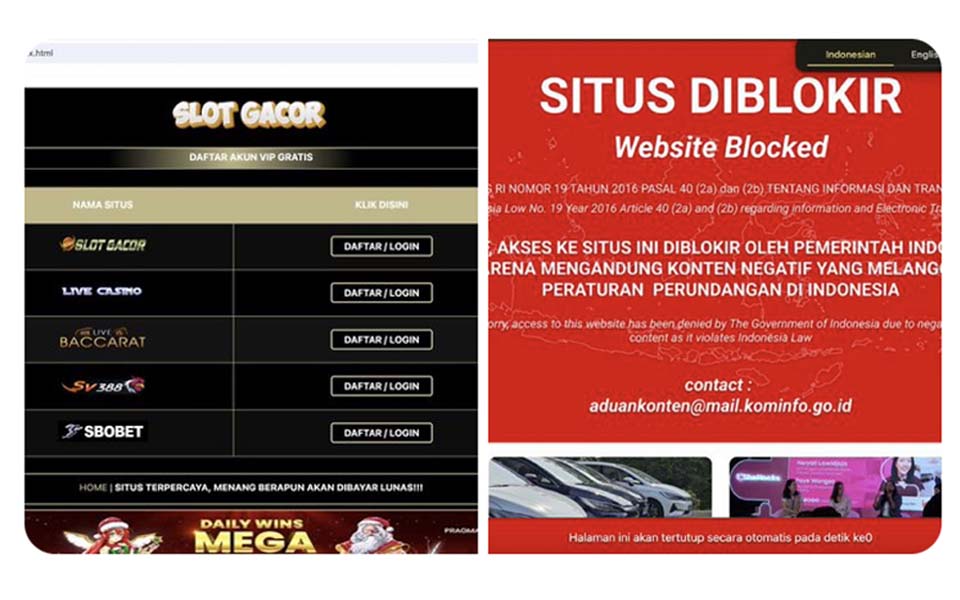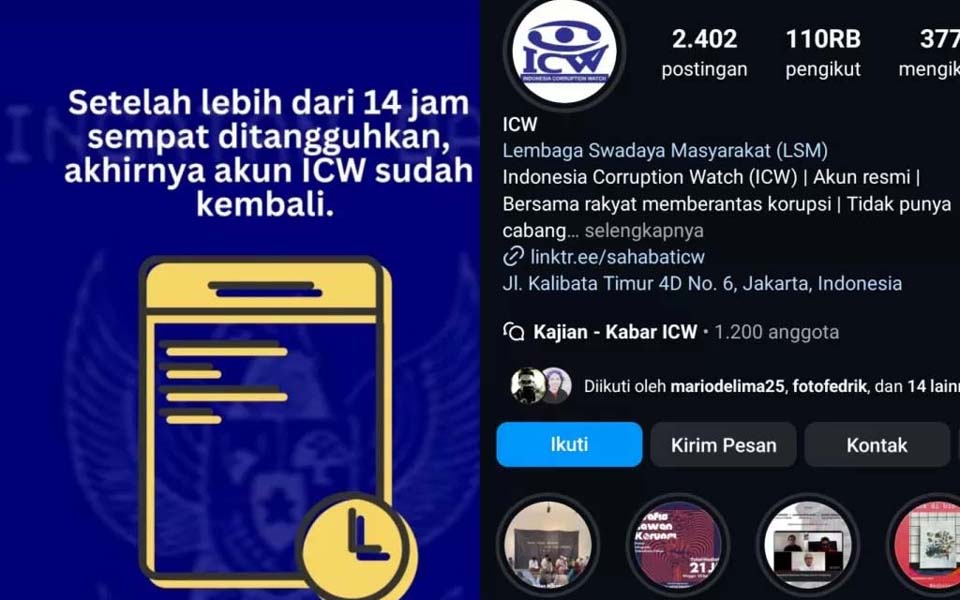Jakarta – Internet users or netizens are protesting a Communication and Information Technology Ministry (Kemenkominfo) policy of blocking technology companies such as WhatsApp, Facebook and Instagram if they fail to register as private Electronic System Providers (PSE).
Indonesia's netizens consider that the policy – which is contained in Kemenkominfo Regulation (Permenkominfo) Number 10/2021 – threatens their privacy as users of these platforms.
The Kemenkominfo has given WhatsApp and the other companies until July 20 to register or have their services blocked in Indonesia.
In the most recent response to the issue, netizens have been criticised the policy by launching the hashtag #ProtesNetizen.
In relation to the this, the Indonesian Legal Aid Foundation (YLBHI) believes that Permenkominfo Number 10/2021 on Changes to Permenkominfo Number 5/2020 on Private PSEs has the potential to violate human rights.
YLBHI Chairperson Muhammad Isnur highlighted the management and moderation of electronic information and documents under Article 9, Paragraphs 3 and 4.
These articles are to ensure that platform owners do not carry prohibited information or facilitate the distribution of data which is prohibited.
What is meant by prohibited data is data which is categorised as violating the stipulations of existing legislation or which creates unease in society or disrupts public order.
"We are of the view that the definition of 'creating public unease' and 'disturbing public order' are very broad", said Isnur in a press release on Monday July 18.
"So this could give rise dual interpretations which could be used by state the security apparatus to kill off criticism which is conveyed peacefully and directed at those in power", he added.
Isnur then highlighted the issue of requests to erase electronic information and documents which are prohibited. Article 14 of the regulation gives the authority to a ministry or [government] institution, law enforcement agencies and the courts to erase content.
The request is considered urgent if it is related to terrorism, child pornography or content which could create public unease or disturb public order.
"If read alongside Article 9, the application of the prohibition on data which creates 'public unrest' and 'disturbs public order' with its broad interpretation could be misused by those in power to restrict freedom of expression, opinion and the public's right to participate peacefully in public activities", said Insur.
Isnur also highlighted Article 36 which regulates the authority for law enforcement agencies to request private PSEs to provide access to communication content and private data.
"This is very vulnerable to misuse in enforcing the law, particularly for the work of human rights defenders who deal with sensitive issues such as women's issues, LGBTIQ [Lesbian, Gay, Bisexual, Transgender, Intersex and Queer] people, traditional communities and Papua", he said.
Rushed
Isnur explained that notification of the deadline for PSEs to register by July 20, which was only announced one month ago, was rushed. Moreover, he continued, the information on the time to begin registering private PSEs through the online single submission (OSS) system and for how long it is valid is unclear.
"This registration process is being done despite the government not yet making improvements to several problems which obstruct freedom of expression and opinion and increases the risk of criminalising human rights defenders in Indonesia", he said.
Communication and Information Technology Minister (Menkominfo) Johnny G. Plate said earlier that parties which fail to register as PSEs by July 20 will be deemed illegal.
PSEs can be individuals, state officials, businesses or members of the public who provide, manage or operate electronic systems individually or jointly for electronic system users for their own needs or the needs of other parties.
In other words, all companies related to the internet, both websites as well as applications, are obliged to register.
Aside from Google and platforms owned by Meta, this would also include music platforms such as Spotify and Joox, various marketplaces, video streaming services, gaming platforms such as PUBG Mobile and Mobile Legends. (ryn/kid)
[Translated by James Balowski. The original title of the article was "Ramai-ramai Protes Ancaman WA Diblokir, Privasi Warga Jadi Sorotan".]






